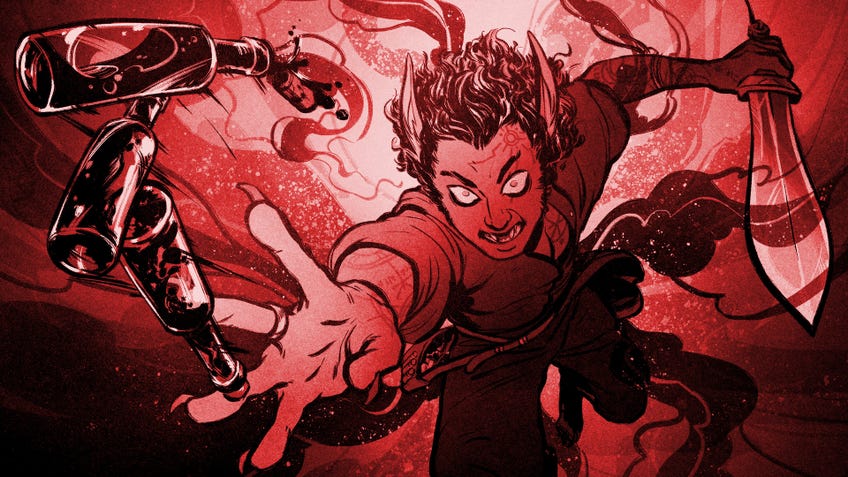‘If I was designing Monster of the Week now it would be very different’: Michael Sands on the RPG’s origins, inspirations and what comes next
Plus, his advice for new players.
Inspired by classic TV serials such as Buffy the Vampire Slayer, Supernatural and The X-Files - the shows’ weekly encounters with various baddies, often neatly wrapped up in under an hour, giving the game its name - tabletop RPG Monster of the Week offers players a fast, light way of enjoying similar bite-sized sessions of monster-hunting and mystery-solving.
In the decade-plus since its release in 2012, designer Michael Sands’ game has seen a second edition - now coming up to a decade old itself - and an expansion in Tome of Mysteries, as well as appearing in the third season of popular actual play series The Adventure Zone.
In the wake of a revised hardcover release for Monster of the Week’s core rulebook and a crowdfunding campaign for whopping expansion Codex of Worlds - which brings over a dozen new team playbooks and five new settings to the game - Sands spoke to Dicebreaker about the game’s origins, what TV shows would inspire its creation today, his plans for the game’s future and more.
Can you tell us about the origins of Monster of the Week - when the idea for the game first came to you, and how it developed into the game that hit tables in 2012?
It was the direct result of me getting into the show Supernatural. I began watching it and immediately wanted a roleplaying game that captured the feel - nothing I'd come across matched it.
There's also some elements that are a kind of response to Trail of Cthulhu and Call of Cthulhu, which I'd played a great deal of back then.
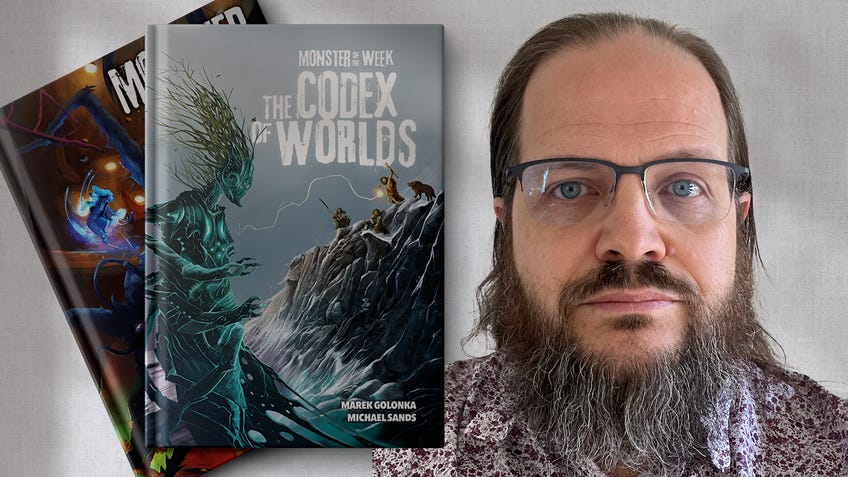
What influenced your decision to use the Apocalypse World system? Did you consider other game engines, or even an original system?
It started as my own system, but I'd been struggling with certain aspects of how to make the game work. When Apocalypse World was released, I realised that Vincent Baker had been thinking about similar problems, and his approach showed me how to take advantage of those insights and mechanisms for Monster of the Week.
The remnants of that original system are Luck and the idea of monster Weaknesses being needed to finally defeat them.
I was watching Supernatural and immediately wanted a roleplaying game that captured the feel - nothing I'd come across matched it.
Monster of the Week is now over a decade old. How do you feel about your design today? Looking back, are there decisions you made then that you’d make differently now?
In that time there's been a lot of innovation in roleplaying games, so if I was designing it for the first time now it would be very different. You'd see ideas from Blades in the Dark and the Year Zero system in particular, both of which I respect a lot.
That said, I'm very happy with the state of the game as it is. People are still coming to it for the first time and enjoying hunting monsters, so I don't feel like the remaining rough edges cause any big problems. We've also just released a hardcover edition which consolidates some of the optional rules from the Tome of Mysteries into the main rulebook, and I think that package is what the core game needs to be.
The material in the new Codex of Worlds also helps to open up options - that's really the core reason for it to exist. The team playbooks and alternate game settings provide structure for doing different things with Monster of the Week while still sticking to the core gameplay that makes it work.
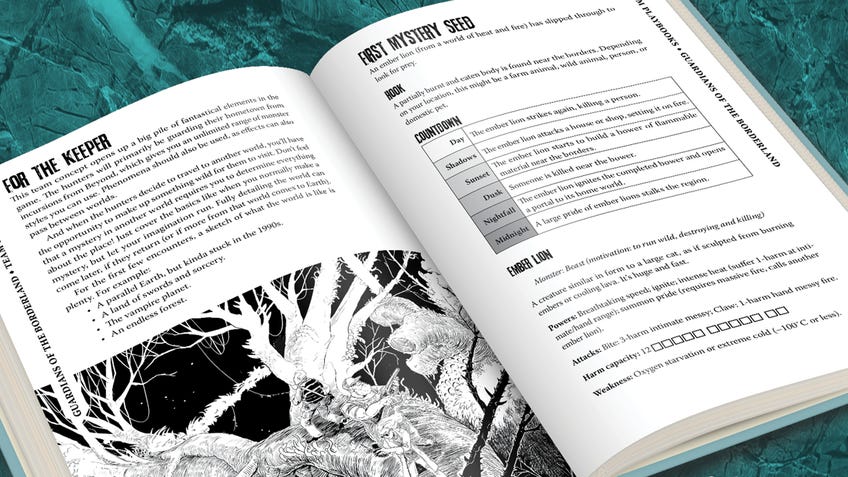
Monster of the Week’s second edition released in 2015 - coming up to a decade ago itself. Do you think you’d ever return to the game for a third edition or similar?
There's no plans for a new edition at this point, but I've certainly thought about what it might look like.
Monster of the Week took inspiration from ‘90s shows such as Buffy and X-Files. What modern shows or stories do you take inspiration from today when running campaigns? How would these have resulted in a different RPG if they’d been around then?
This is a little hard to answer, as I don't run many Monster of the Week games these days! It's mainly demo games or playtests for me, and the last full series I ran was around the time of the revised edition development, eight years back.
I have still been watching media, of course, and shows like Lockwood & Co, The Witcher and Grimm stand out for me. I think one thing that might change now is less of a focus on guns, violence and killing a monster as the default solution to problems. Readers of the new Codex of Worlds will find that sensibility coming through in some of the new material.
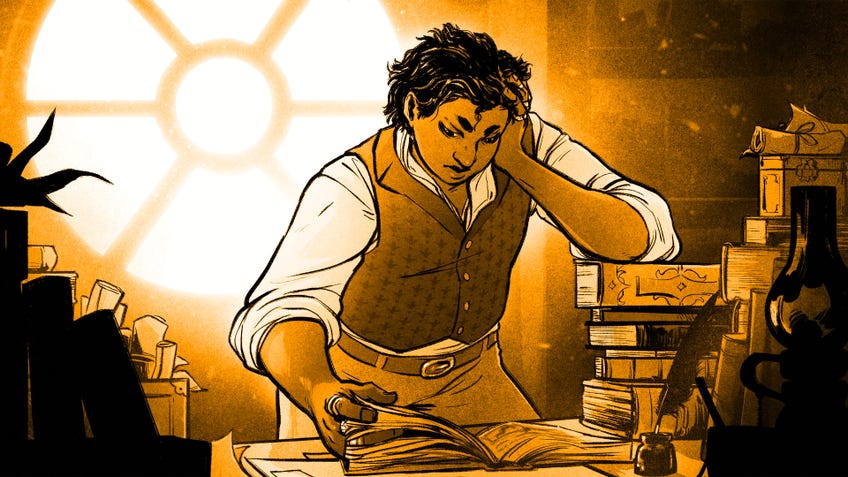
Monster of the Week’s original setting was fairly flexible and open-ended. How have you evolved this since? What do you personally enjoy bringing to the world of your campaigns?
I am still a huge fan of that open style of world-building. I love coming to the table at the start of a game with only a few ideas for what might be fun, and generating a shared world with the group as we play. That shared imagination and creativity is what makes roleplaying my hobby of choice.
One thing that might change if I were making Monster of the Week now is less of a focus on guns, violence and killing a monster as the default solution to problems.
What are your favourite additions to Monster of the Week - supplements, settings, campaigns or something else entirely - that have released since your game?
I always find it hard to pick favourites! In terms of what we've released, though, I really think the diversity of authors in the Tome of Mysteries added a huge amount to the line. In the Codex of Worlds, Marek Golonka has written roughly half the content there, and his perspective and ideas also open up huge areas that I wouldn't have been able to do on my own.
It's also always great to see when folks post online their custom material from their own games. Knowing that people are out there figuring out what they want out of play and making it happen is great, and I think that's always been a core part of the hobby.
What three pieces of advice would you give to new Monster of the Week players and GMs looking to run the best campaign possible?
1. If you're coming from other game systems, set your preconceptions aside and play Monster of the Week as the book tells you. You might want to adjust it after you see how it works, of course. This advice doesn't just apply to Monster of the Week, either. I think often people's initial experiences of a new game can suffer if they bring in their ideas about how to play other games rather than taking the new game on its own terms.
2. The Hunter agenda and Keeper agenda are the core rules about how to play. Keep those in the forefront of your mind and any other mistakes in play can be smoothed over.
3. Remember that everyone at the table is there to have fun. Everyone should be contributing in ways that support the enjoyment of everyone there. In particular, don't expect that only the Keeper/gamemaster is responsible for that. They are also there to play and have a good time.
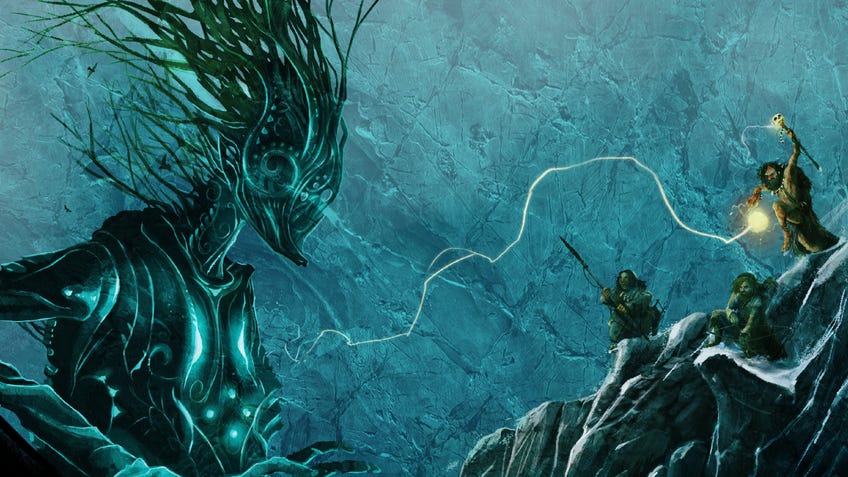
What are you currently working on, for Monster of the Week or otherwise?
As I write this, we're still in the last few days of the Codex of Worlds crowdfunding campaign, so I'm busy writing up initial drafts of the stretch goal material I'm committed to. It's fun as it's a bit of a tour back through all the different parts of the Codex, which I mostly wrote about a year ago.
Once that's done, I'll be back to working on two other games I've got in development.
People's initial experiences of a new game can suffer if they bring in their ideas about how to play other games rather than taking the new game on its own terms.
The first is Xenogate Expedition 13, which has the players part of a scientific team stranded in a hostile part of the galaxy. It uses the Forged in the Dark system from Blades in the Dark and some ideas from Band of Blades. There's a tiny "mini preview edition" of that available if people want to have a look. It takes inspiration mostly from the Stargate shows and the old Fringeworthy RPG.
Next up is Glorious, which is a take on the Napoleonic Era naval adventure genre of historical fiction. That's primarily inspired by the Aubrey & Maturin books by Patrick O'Brian and the Hornblower books from C S Forester. That's built on its own system which emphasises taking risks for greater glory as opposed to success and failure of action.
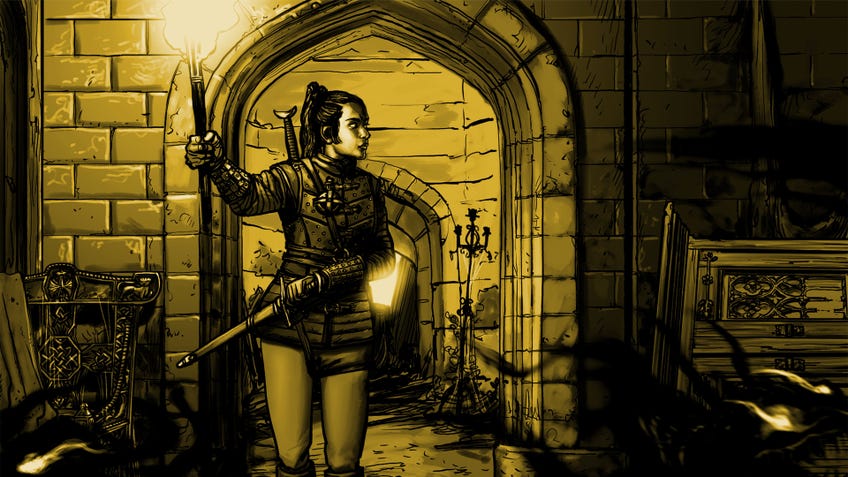
What other tabletop games have inspired you lately, in terms of setting, gameplay mechanisms or something else?
My regular crew just started playing Katanas & Trenchcoats, which is a delightful 1980s/90s gothic action game - think Highlander, The Crow, Blade. As well as being very fun in play, the rulebook is a masterclass in knowing exactly what the game is about and getting the reader into the right mindset to play it.
I really love the Alien RPG. The system, while simple, does a great job of building tension in a way that feels just like the films.
I've also played a fair bit of the Alien RPG recently, which I really love. The system mechanisms, while simple, do a great job of building tension in a way that feels just like the films. Fria Ligan have also done a fantastic job with the cinematic scenarios they've created, with the combination of characters, handouts, and maps to use in each one.
I'm also looking forward to getting to play, hopefully soon, some RuneQuest Glorantha and City of Winter. I played a great deal of RuneQuest in the 1990s, and the new edition is a wonderful modern take on the world which I'd like to visit again. And City of Winter is the sequel to the beautiful journey-along-a-map-scroll game Fall of Magic. City of Winter is both more beautiful in production and looks to be deeper in game play than the first.
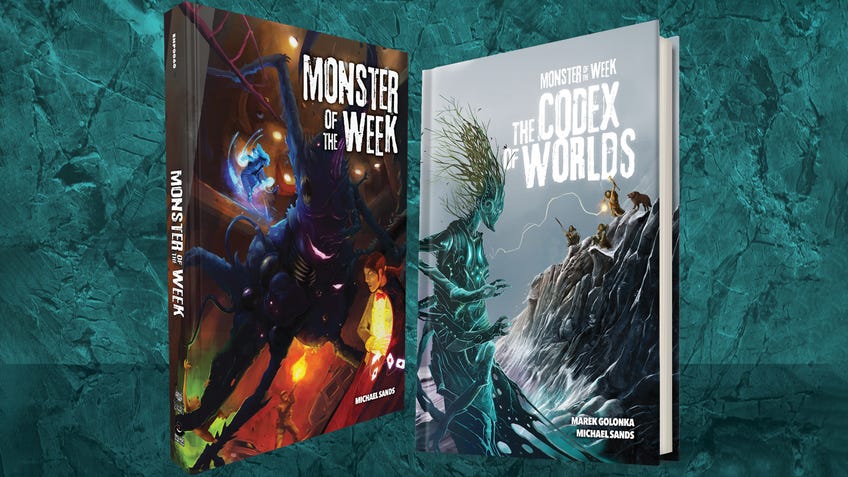
Last one is a shout out to another designer from my hometown who has a crowdfund going right now: Imaginary Empire games has Arcane Crimes Division currently up, a procedural/buddy cop style game set in a fantasy city where you're tracking down magical criminals. I really enjoyed reading through the preview of this and I'm looking forward to the final product.
Also if anyone's interested in more game designers and RPG content from Aotearoa/New Zealand, there's a bit of a community of us getting together at KiwiRPG, with lots of neat stuff happening down here.
As a side note: you can never go wrong trying out new games!
This interview has been edited for clarity and length.
